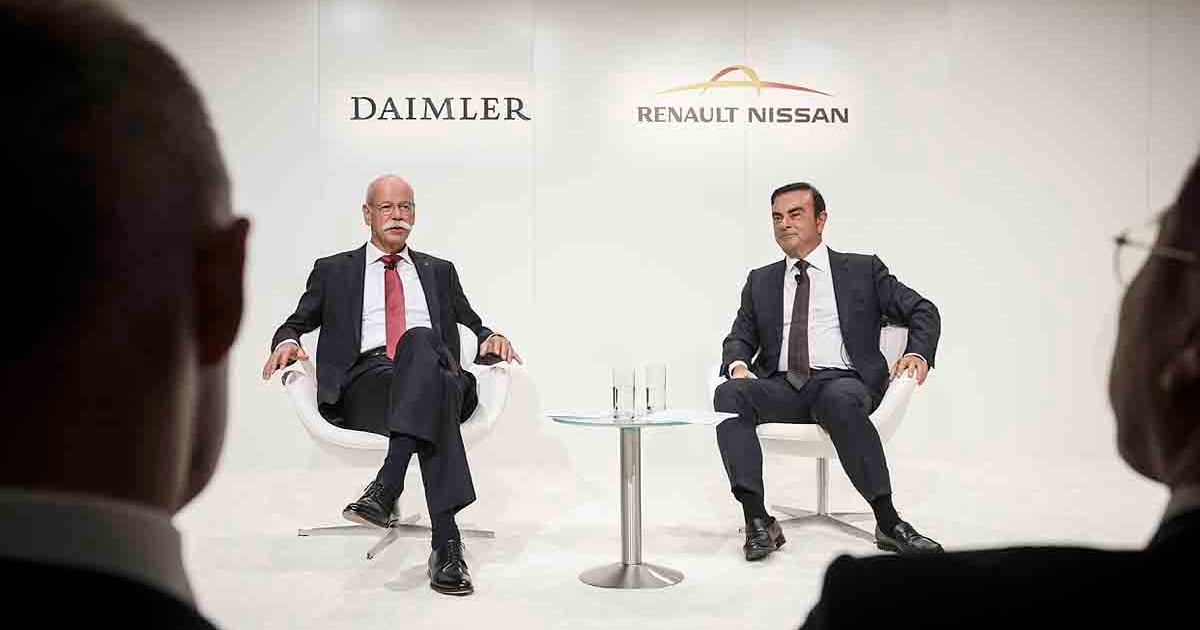
Mercedes-Benz’s manufacturing joint venture with Nissan in Mexico could be on the bubble.
A top Mercedes-Benz executive questioned the long-term prospects of the $1.4 billion manufacturing partnership with Nissan Motor Co.
The auto assembly plant in Aguascalientes, Mexico, known as COMPAS, builds the Mercedes GLB crossover and Infiniti QX50 and QX55 crossovers.
On an earnings call from Germany last week, Mercedes-Benz CEO Ola Kallenius referred to the Mexico manufacturing partnership as “stable” for now.
“We have a good partnership with Nissan, and it’s supposed to stay this way for the next three years,” Kallenius said. “What will happen after that, we haven’t decided yet.”
The sprawling factory in central Mexico is the cornerstone of an extensive industrial partnership, announced in 2010, for Daimler and the Nissan-Renault alliance to share vehicles and powertrain technologies.
The Euro-Japanese industrial collaboration was willed into reality by Nissan’s now-ousted chairman, Carlos Ghosn, and Daimler’s now-retired CEO, Dieter Zetsche.
Kallenius’ cloudy assessment gives credence to industry chatter that the COMPAS venture is sputtering as Mercedes and Infiniti pivot their U.S. lineups toward electric vehicles.
Forecasting firms LMC Automotive and AutoForecast expect production at the Mexico plant to end around mid-decade.
“The outlook for the underutilized COMPAS plant is dim because there’s no product allocated beyond 2026,” AutoForecast Solutions vice president Sam Fiorani told Automotive News.
Last year, the factory assembled 108,681 vehicles — significantly under half of its 230,000 capacity, according to AutoForecast. Even at its production peak in 2020, the factory managed less than 50 percent of installed capacity.
LMC’s president of global forecasting, Jeff Schuster, said the Mexico plant’s low output does not deliver the scale to support regional production. “It defeats the purpose of the joint venture,” Schuster said last year.
Some of the compact models built at the plant have struggled to find traction in a market that favors large vehicles.
U.S. sales of the Infiniti QX50 tumbled 42 percent last year, exacerbating the brand’s multiyear sales slump.
Mercedes pulled output of the A-Class subcompact sedan out of the COMPAS two years after production started and halted U.S. sales after the 2022 model year.
While the Mexico venture’s long-term outlook is uncertain, another of the partnership’s projects — an engine manufacturing venture — is unraveling.
In March, production at a Nissan engine plant in Decherd, Tenn., that supplies engines to Mercedes will end.
Known as the Infiniti Powertrain Plant and constructed for $319 million next to Nissan’s Decherd engine and components plant, the facility produced a Mercedes-developed turbocharged 2-liter four-cylinder engine — designed by Mercedes, manufactured by Nissan, and installed in models carrying both Infiniti and Mercedes badges.
Last summer, Mercedes told dealers it will ditch the Tennessee-made four-cylinder engine that powers the brand’s GLE midsize crossover and its Sprinter and Metris commercial vans.
The factory also quit building engines for the Infiniti Q50 after the 2019 model year.